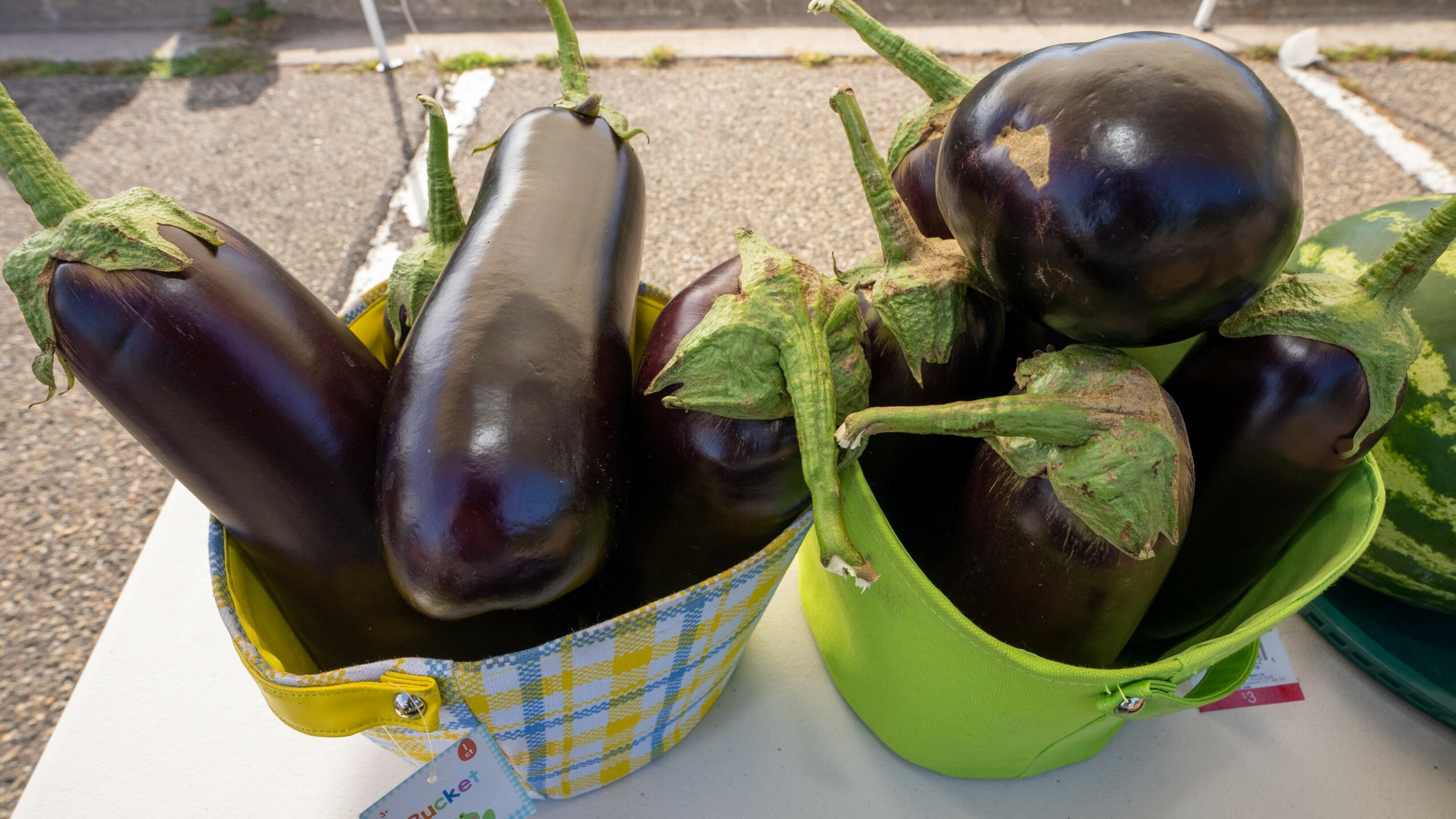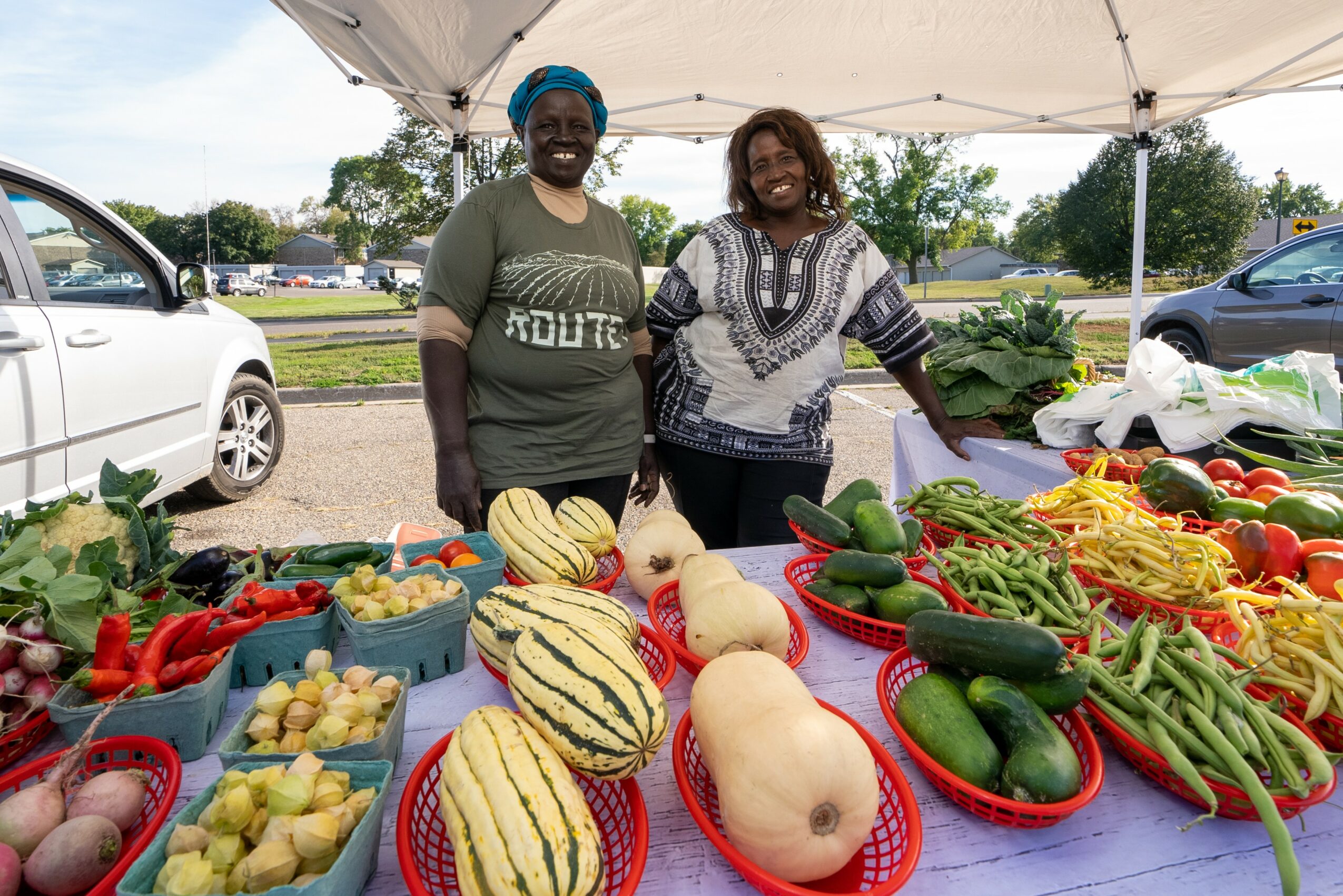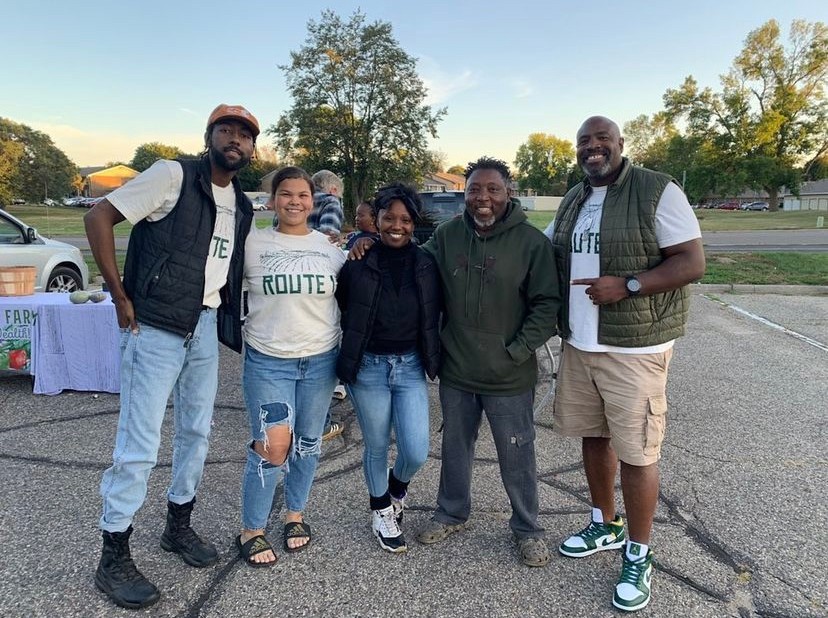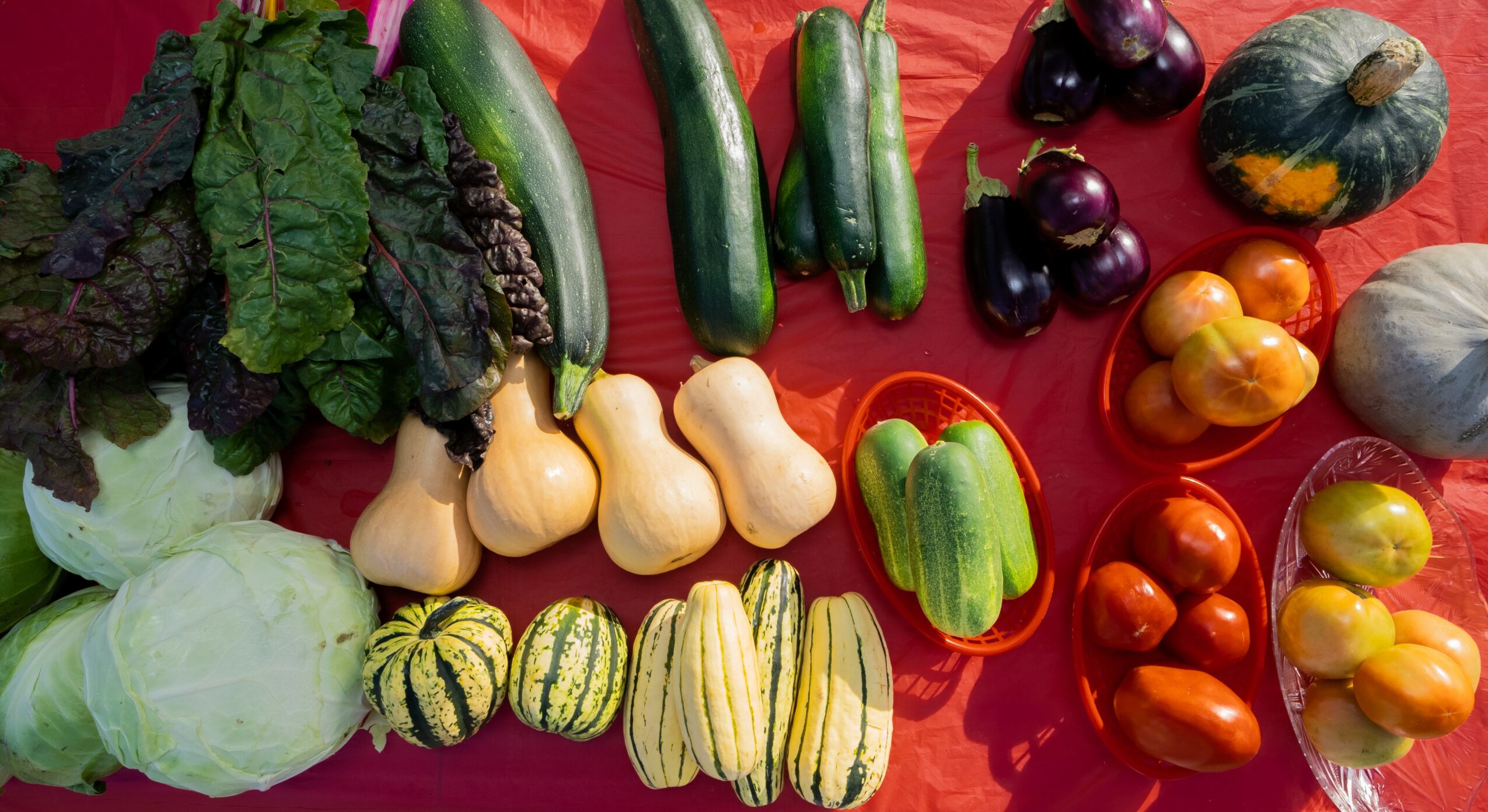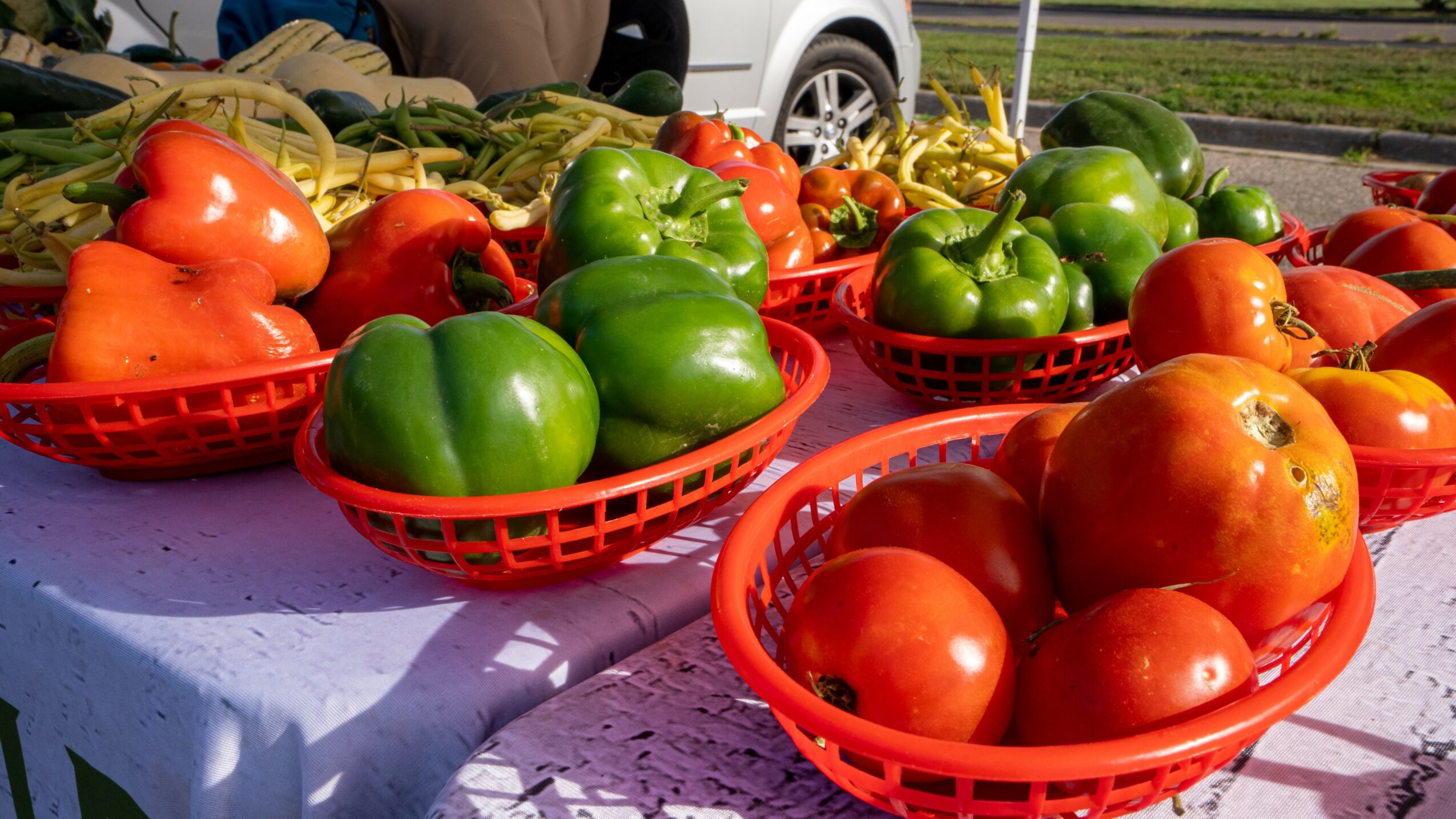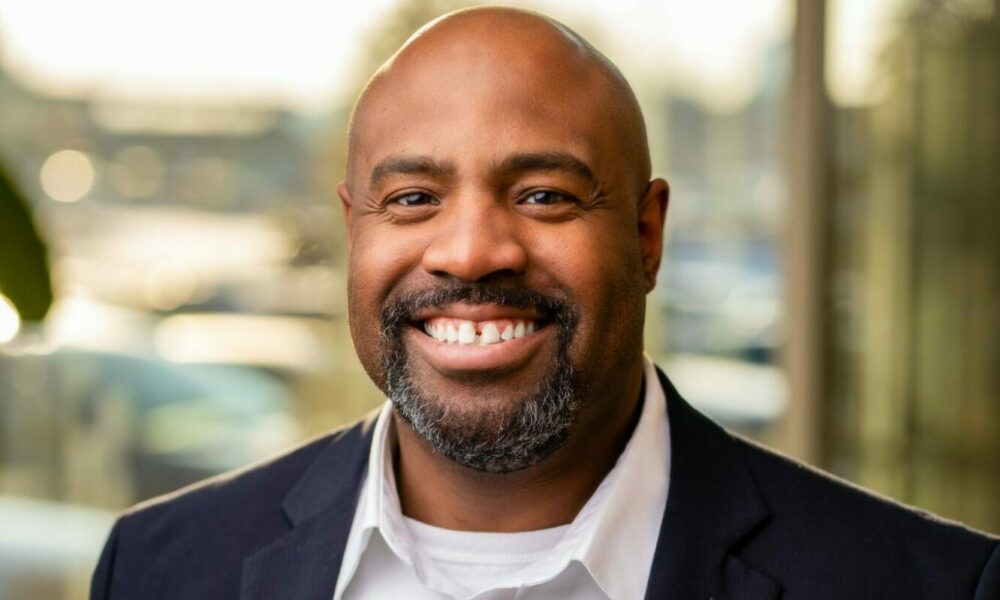

Today we’d like to introduce you to Marcus Carpenter.
Hi Marcus, so excited to have you on the platform. So before we get into questions about your work life, maybe you can bring our readers up to speed on your story and how you got to where you are today.
My story begins four generations ago with my great-grandparents, Felix and Sally Carpenter, and their modest farm in Northeast Arkansas. They started out with 20 acres in 1914 and grew it to 180 acres before my Great Grandfather passed in 1936. At the time, it was one of the largest Black owned farms in Northeast Arkansas. My cousins and I spent our formative years going back and forth to Arkansas from the Northern states and we beamed with pride knowing that our roots began in the fertile soil that sat to the east and west of Route 1. During my collegiate years, I was fortunate enough to play football for the University of Wisconsin-Madison and graduated with a B.S. and a triple major in Sociology, Behavorial Sciences and Law, Criminal Justice. After undergrad, I was able to sharpen my business acumen by creating unique solutions for clients in the vibrant Minneapolis market. I spent time leading top sales organizations for companies such as Philip Morris USA, The National Basketball Association, CA Technologies, Jostens, and Rewriting the Code, a tech non-profit focused on supporting Women in Tech. However, my entire focus changed after that horrific summer of 2020 and the brutal murders of George Floyd, Breonna Taylor, and Ahmad Aubrey.
I saw how the food supply chain was negatively affected by the pandemic and the social unrest, specifically within communities of color, and I knew I had to do something about it. My mission and focus turned to trying to figure out how we as a society can increase food access, specifically within communities of color? How can we ensure that communities of color have access to ‘the good medicine’ that can only come from regeneratively grown food sources? Food sits at the base of Maslow’s Hierarchy of Needs and my belief is that if we can help to provide this human right and basic building block of life, we may be able to increase the likelihood of building a more just and equitable society. The research at the time was clear in that there was (and still is) a significant gap in hunger rates, especially as it relates to race. In my estimation, this racial hunger gap could be decreased by ensuring that communities of color not only have access to food, but to culturally relevant food, food that is grown by folks who live within those communities. My hypothesis is that if we can support these farmers who are growing this clean, culturally relevant food and who are also using indigenous regenerative farming techniques, we can not only increase food access, but we can also increase health equity, economic development, and community vitality. We will also see the climate benefits of increased soil health and carbon sequestration. At the end of the day, I’m hopeful that my story and the result of our work can be a testament to the enduring legacy of family values and an unwavering dedication to caring for the people who care for the Earth.
Can you talk to us about the challenges and lessons you’ve learned along the way? Looking back, would you say it’s been easy or smooth in retrospect?
I embrace the struggles we’ve faced along the way, challenges that resonate with many founders. Access to resources, funding, and building a capable team to scale the organization were significant hurdles. Understanding the intricate, highly regulated, and dispersed food access system at both micro and macro levels presented a steep learning curve. Yet, I truly believe, with persistence and an unwavering commitment to the work, we can find resources and forge strategic partnerships to aid our mission.
I’ve also learned to lean in even more to the infinite power of the “Collective We.” Consistent visits down South as a kid taught me the power of community effort. My ancestors faced exponentially more adversity than I have and with far fewer resources. Since Reconstruction, America has struggled in its assistance for Black and Brown farmers, however, Route 1 and today’s crop of BIPOC Farmers are starting to get a good amount of support from our local, state, and federal governments. The Minnesota Department of Agriculture is leading the nation in its support of emerging farmers and has launched one of our country’s first emerging farmers offices. The cities of Hopkins and Medina Minnesota have been instrumental in their support of our efforts early on and lastly, substantial dollars are being allocated by our nation’s finest universities to help BIPOC youth pursue careers in agricultural production and processing. Tuskegee University has played a pivotal role in the lives of Black Farmers since its founding in 1881 and in similar fashion, it has played a pivotal role in empowering Route 1 to grow our business and discover new markets.
Most notably, Dr. Olga Bolden-Tiller, Tuskegee’s Dean of CAENS (Agriculture, Engineering, and Nutritional Sciences), and the Agritrek program at Tuskegee have been invaluable allies in the pursuit of our mission. Dr. Bolden-Tiller, along with Dina Horwedel (American Indian College Fund) and Sook Jin Ong (Nexus Community Partners), make up our advisory board and I am very proud to say that our women-only advisory board is steering us with smart, courageous, passionate, data-driven advice.
Lastly, the support that we’ve received from our foundation and corporate partners has been absolutely stellar. Our very first supporter was the Social Good Fund, quickly followed by American Family Institute for Corporate and Social Impact, Be the Match, the UCare Foundation, and the Finnovation Lab with support from the Bush Foundation.
Thanks for sharing that. So, maybe next you can tell us a bit more about your business?
As we discussed earlier, the experiences of 2020 and my work outside the corporate realm unveiled the power of community-driven initiatives and the potential to create lasting social impact. The research at the time revealed a stark reality — less than 1 percent of Minnesota farmers were people of color. Route 1 is determined to change this statistic and create a more inclusive and vibrant agricultural community here in Minnesota.
It all starts with education, which is at the core of our business. Through our Route 1 Emerging Farmers Institute, we are training farmers not only how to grow their specialty crops, but more importantly, how to grow their business. We are helping to increase land access, the number one barrier to farming and connecting BIPOC farmers with other critical business resources like access to financing, market development, and business planning. Also within the education platform is our Route 1 Youth Academy which helps mostly Black and Brown urban youth come out to the farm and get their hands in the soil. This curriculum based academy focuses on educational and career development, workforce development, character development and more. We believe that this education foundation is the key to the success of the Route 1 mission.
Moving beyond education is our commerce layer where we have two farmers markets: One focused on increasing generational wealth for the farmer (located in a higher income, suburban area) and one that is located right in the middle of a food desert. This market is laser focused on delivering fresh produce to the community. We accept SNAP, EBT, and Minnesota Market Bucks, a program that matches SNAP-EBT spending dollar-for-dollar (up to $10) at participating farmers markets across Minnesota. Also nestled within the commerce layer is the Route 1 Pathways Portal, the Beta version of our online commerce platform. This platform will allow families, restaurants, chefs, and corporate food service partners the opportunity to purchase hyper local, regeneratively grown food sourced directly from BIPOC Farmers across Minnesota.
Next is our Farming layer. Here is where Route 1, as an organization, will deploy its own team of farming experts; farmers who are leading the state in cutting edge technologies and aspirations for growing the world’s most eco-friendly crops. We will investigate opportunities to grow crops like Kernza, Field Peas, Radishes and Potatoes; crops that capture carbon, decrease soil erosion and increase soil health. Route 1 plans to grow food outside and in an indoor platform, a need that is exacerbated by Minnesota’s harsh winter climate.
And lastly, my favorite part of the business, our Innovation layer. Within this platform, Route 1 will make space for BIPOC agri-thinkers, conservationists, and eco-centric entrepreneurs and give them the ability to ideate, create and launch their eco-focused agricultural products, services, and technologies. This space for these targeted individuals doesn’t currently exist. We will seek out community supporters, social impact leaning foundations, Angels, VC’s, traditional banks and other funding sources to help support this amazing group of folks who have often been left out of capital discussions.
Maybe I’m just another crazy entrepreneur, but I do believe we can change the world and get food to the people who need it. The research shows that globally, we grow 3X the amount of food that is needed for human consumption. Our challenge is to ensure that production and delivery mechanisms are in place so that the food gets to the right place. Through dedication, perseverance, and a vision to empower underrepresented farmers and families, Route 1 is helping to cultivate change, one person at a time.
How can people work with you, collaborate with you, or support you?
Route 1’s immediate needs include access to land to accommodate more farmers, as well as funding to secure and develop these lands. Existing farmers with land “to spare” can reach out to Route 1 directly to discuss how they can help emerging farmers start their own operation with a lease. Additionally, the visibility of our mission is critical. Folks sharing this article would be a great start!
Lastly, we welcome support in various forms, emphasizing the three Ts: Time, Talent, and Treasure. Volunteers can contribute their time at one of Route 1’s strategic food delivery partners: The Food Group, Catholic Charities of Saint Paul and Minneapolis, and the Good Acre. Teachers and mentors can offer their talent and those who choose to donate can provide treasure to sustain Route 1’s mission. We can make a difference, starting here in Minnesota and with the support of the “Collective We”, all things are possible for making change across the country.
Contact Info:
- Website: www.route1mn.org
- Instagram: https://www.
instagram.com/route1mn/ - Facebook: https://www.
facebook.com/profile.php?id= 100093836050334 - Linkedin: https://www.
linkedin.com/company/95691262/ admin/feed/posts/ - Twitter: https://twitter.com/
Route1MN - Youtube: https://www.route1mn.
org/?wix-vod-video-id= bd787caaa02a4721aa3156121706bd 3d&wix-vod-comp-id=comp- likoq9mi
